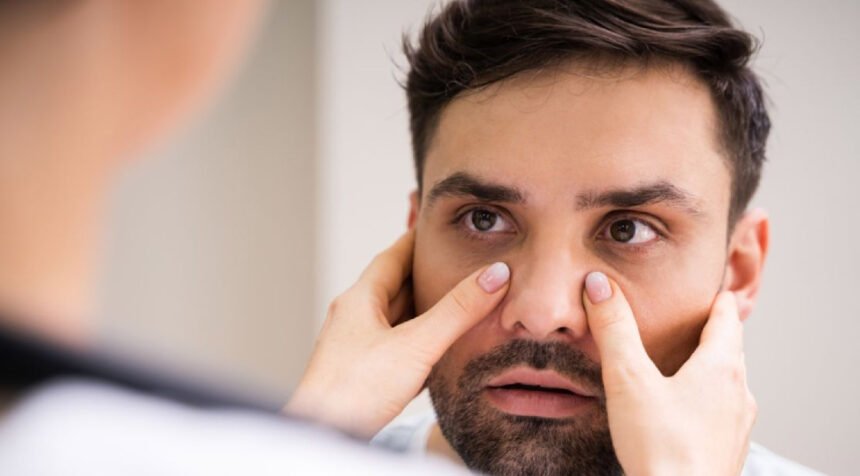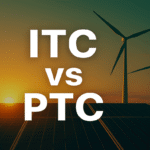Allergic fungal sinusitis (AFS) is a chronic condition that affects the nasal passages and sinuses. Unlike simple sinus infections, this type is triggered by the body’s immune system overreacting to fungi in the environment. Patients often deal with nasal polyps, facial pressure, headaches, and recurring blockages that do not respond well to standard treatments.
For years, many people with AFS were misdiagnosed or treated with antibiotics that had little effect. This is because AFS is not just about infection—it’s about an allergic response combined with sinus inflammation. Treating it is complex, but doctors are now changing their strategies with new approaches that combine surgery, medication, and allergy management.
What Causes Fungal Allergic Reactions in Sinuses?
Allergic fungal sinusitis ( AFS) happens when fungal spores in the air trigger the immune system. While most people breathe in spores without problems, those with AFS develop an exaggerated allergic response. This leads to thick mucus, swelling, and polyp growth inside the sinuses.
Common Symptoms That Point to Allergic Fungal Sinusitis
People with AFS often experience chronic congestion, loss of smell, facial pain, and repeated sinus infections. Because the symptoms overlap with other conditions, it’s often confused with simple bacterial sinusitis.
Why Early Diagnosis Matters for Effective Treatment
Delays in diagnosis mean longer suffering and higher chances of sinus damage. Doctors now use imaging scans and allergy testing to identify fungal triggers early and build a proper treatment plan.
Challenges in Treating Allergic Fungal Sinusitis
Why Standard Antibiotics Often Fail
Unlike bacterial infections, AFS isn’t caused by germs that antibiotics can kill. This explains why patients who rely only on antibiotics keep having flare-ups. The root cause is inflammation from an allergic reaction, not bacteria.
The Role of Fungal Allergens in Chronic Sinus Problems
The presence of fungal debris inside the sinuses keeps fueling allergic responses. Unless this material is cleared out, the cycle of swelling and blockage continues.
How Misdiagnosis Can Delay Proper Care
Because the symptoms look like other sinus problems, AFS may go untreated for years. This delay makes treatment harder and increases the risk of repeated sinus surgery.
Effective Treatments for Allergic Fungal Sinusitis
Endoscopic Sinus Surgery to Clear Fungal Debris
Doctors often begin with endoscopic sinus surgery to remove fungal buildup, open sinus passages, and reduce blockages. Surgery gives patients relief but is not a cure by itself—ongoing care is needed to prevent recurrence.
The Role of Corticosteroids and Antifungal Therapies
Corticosteroid sprays or rinses reduce inflammation and help shrink nasal polyps. Some cases may include antifungal therapies, though their effectiveness is still debated. The main goal is to keep the sinuses open and free from allergic swelling.
Immunotherapy and Allergy Management
Because AFS is linked to allergic responses, doctors are turning to immunotherapy (allergy shots or drops) to help patients build tolerance over time. Managing allergies reduces flare-ups and improves long-term outcomes.
Preventing Recurrence of Allergic Fungal Sinusitis
Long-Term Use of Nasal Irrigation and Sprays
Daily saline irrigation and medicated nasal sprays help wash away allergens and maintain clear passages. These simple routines lower the risk of fungal buildup.
Lifestyle Changes to Reduce Exposure to Allergens
Patients are often advised to limit exposure to dust, mold, and damp environments. Using air filters, keeping homes dry, and avoiding outdoor triggers during allergy seasons can make a big difference.
Regular Follow-Ups With ENT Specialists
Because AFS is chronic, ongoing follow-ups with ENT specialists are critical. Routine check-ups help spot early signs of recurrence and keep treatment on track.
Why Treatment Remains Complex
Balancing Surgery With Medical Therapy
Surgery alone isn’t enough. Doctors must balance surgical removal of fungal debris with long-term medical therapy to control inflammation and allergies. This layered approach makes treatment more effective but also more complex.
Addressing Individual Allergy Profiles
Every patient reacts differently to fungal spores and allergens. Doctors now focus on personalized treatment plans instead of one-size-fits-all approaches, which requires careful testing and follow-up.
The Ongoing Risk of Recurrence
Even after surgery and therapy, AFS can come back. The constant presence of fungi in the environment means treatment is about management, not permanent cure.
How Doctors Are Changing the Strategy
Using Advanced Imaging for Precise Diagnosis
Modern CT scans and nasal endoscopy help doctors pinpoint areas of fungal buildup. This allows for more precise surgeries and reduces unnecessary procedures.
Combining Surgery With Immunotherapy
Instead of relying on surgery alone, doctors are now pairing it with allergy management to treat the underlying immune response. This combined approach improves long-term results.
Exploring Biologic Medications for Chronic Cases
New biologic drugs designed for severe allergies and asthma are being tested for AFS. These medications target specific immune pathways, offering hope for patients who don’t respond to traditional treatments.
Conclusion
Treating allergic fungal sinusitis is not simple. Unlike standard sinus infections, it involves allergies, inflammation, and environmental triggers that don’t disappear overnight. This makes treatment complex, requiring surgery, medications, and ongoing management.
But doctors are changing the strategy. With advanced imaging, immunotherapy, and new biologic treatments, patients now have better options than ever before. While there may not be a permanent cure, modern approaches give people with AFS a chance at lasting relief and a better quality of life.
For More Information Visit Dotmagazine









